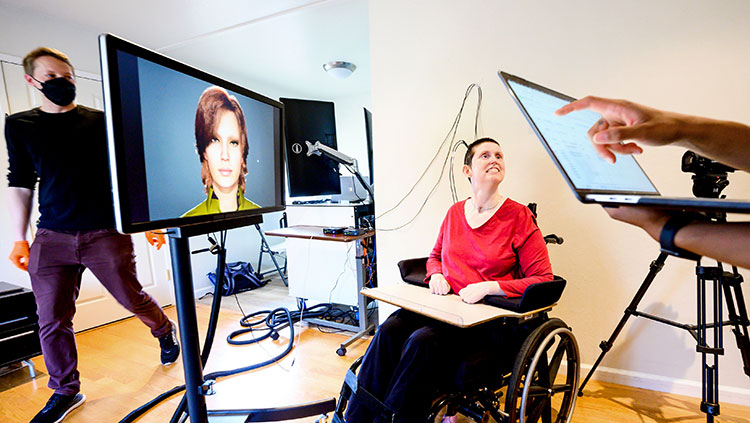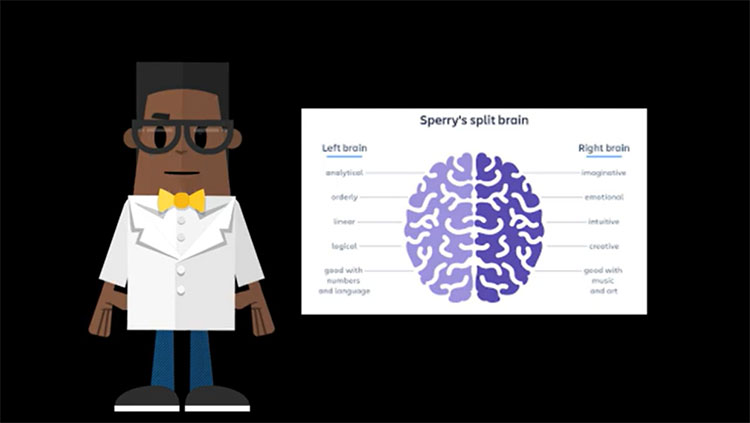The Human Brain
- Published1 May 2012
- Reviewed7 Nov 2014
- Source BrainFacts/SfN
The human brain — a spongy, three-pound mass of tissue — is the most complex living structure in the known universe.
It has a capacity to store more information than a supercomputer and to create a network of connections that far surpasses any social network. The brain has enabled humans to achieve breathtaking milestones — walking on the moon, mapping the human genome, and composing masterpieces of art, literature, and music.
A single organ that controls the body
Scientists still have not uncovered the full extent of what the brain can do. This single organ controls every aspect of the body, ranging from heart rate and appetite to emotion, learning, and memory. The brain controls the immune system’s response to disease and determines, in part, how well people respond to medical treatments. It shapes our thoughts, hopes, dreams, and imaginations. It is the brain’s ability to perform all these functions that makes us human.
Neuroscientists specialize in the study of the brain and the nervous system. They have the daunting task of deciphering the brain’s commands of all these diverse functions. Over the years, the neuroscience field has made enormous progress. Scientists continue to strive for a deeper understanding of how the brain’s 100 billion nerve cells are born, grow, and connect. They study how these cells organize themselves into effective, functional circuits that usually remain in working order for life.
Brain researchers are motivated to understand behavior. How do cell circuits enable us to read and speak? How and why do we form relationships? How do we think, remember, despair, or motivate? Scientists discover possible causes of devastating disorders of the brain and body, as well as ways to prevent or cure them. And they strive to advance a centuries-old scientific quest to understand how the world around us works.
The importance of neuroscience
The importance of this research cannot be overstated. More than 1,000 disorders of the brain and nervous system result in more hospitalizations than any other disease group, including heart disease and cancer.
In 2007, the World Health Organization estimated that neurological disorders affect up to one billion people worldwide. In fact, neurological diseases make up 11 percent of the world’s disease burden, not including mental health and addiction disorders.
The cost of these diseases is high across the globe. For example, the European Brain Council estimated that neurological diseases in Europe alone cost one trillion dollars a year in 2010.
In the United States, 2005 data indicate that neurological illnesses affect more than 50 million Americans annually and cost more than $500 billion to treat. In addition, mental disorders strike 44 million adults a year at a cost of $148 billion. Advances in research could reduce these costs. Discovering how to delay the onset of Alzheimer's disease by even five years could save $50 billion in annual health care costs in the United States alone. Given the aging of many populations around the globe, the impact of Alzheimer’s is many times that amount.
All these estimates are low due to the lack of statistics and treatment in developing countries. As better health care access spreads to developing nations, the number of patients requiring treatment will increase, furthering the need for research to understand and treat diseases effectively.
CONTENT PROVIDED BY
BrainFacts/SfN
Also In Anatomy
Trending
Popular articles on BrainFacts.org

















